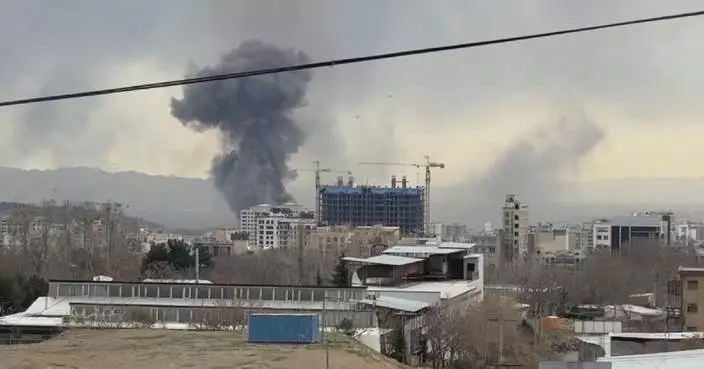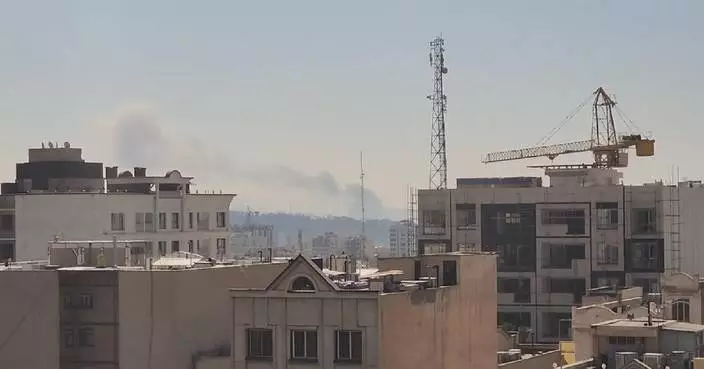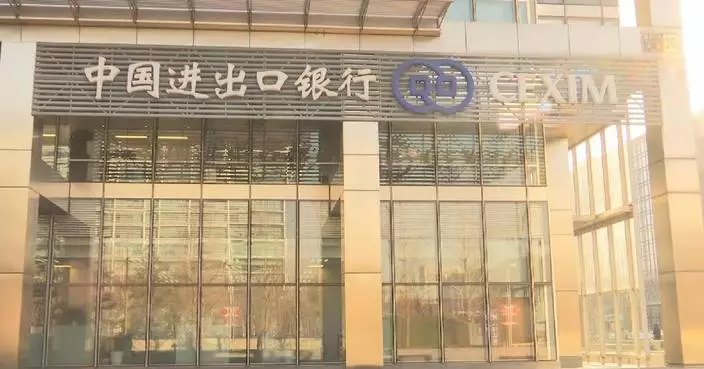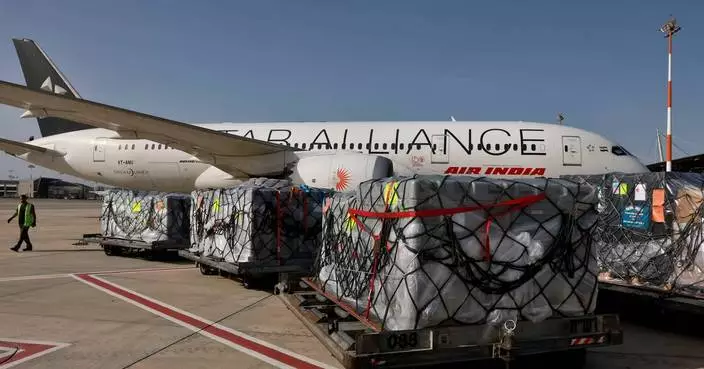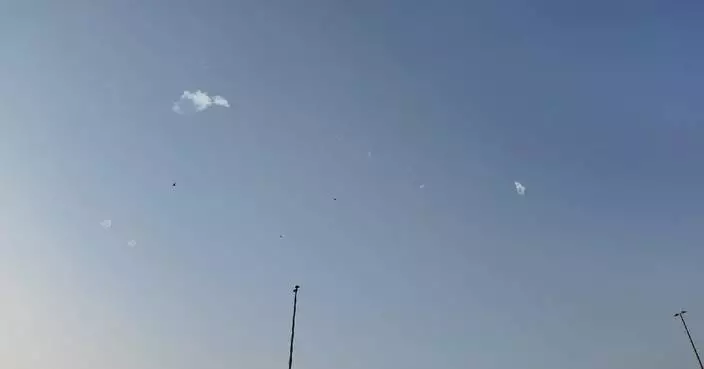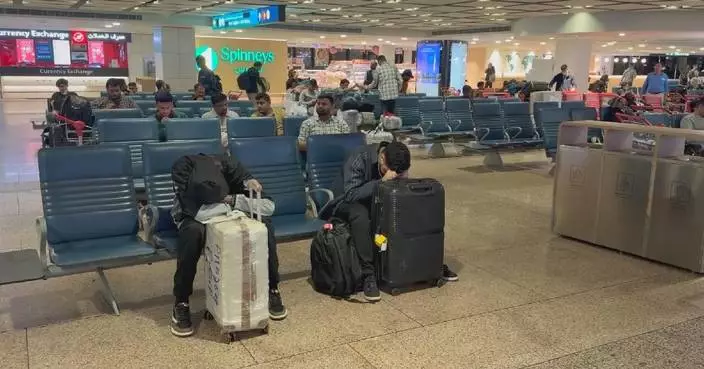Feature · News
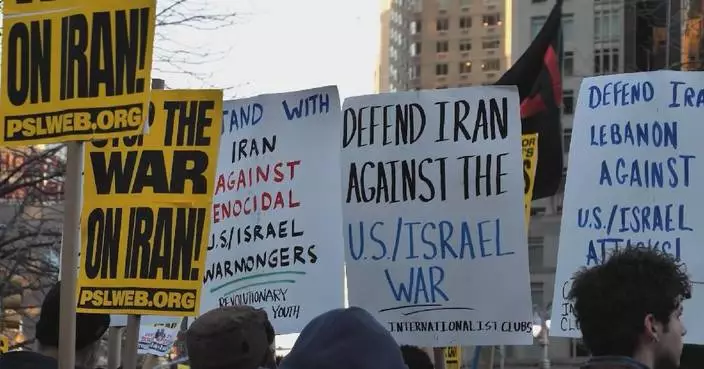
Demonstrations take place across US after US-Israeli strikes on Iran
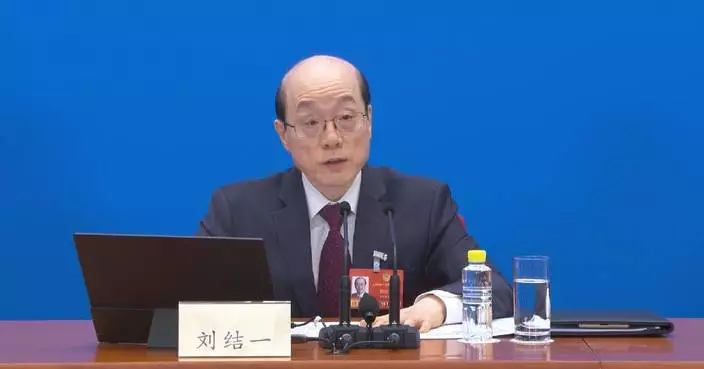
China's top political advisory body steps up efforts to forge strong sense of community for nation: spokesman

Demonstrators gather outside White House to protest against US strikes on Iran
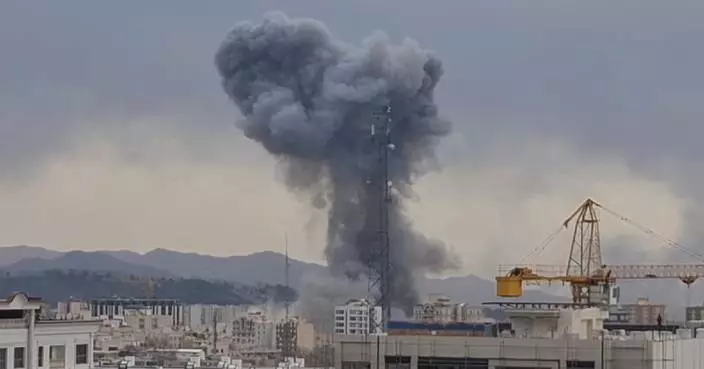
Trump says he will not rule out sending ground troops to Iran

Iranian FM condemns US-Israeli strikes on girls' elementary school
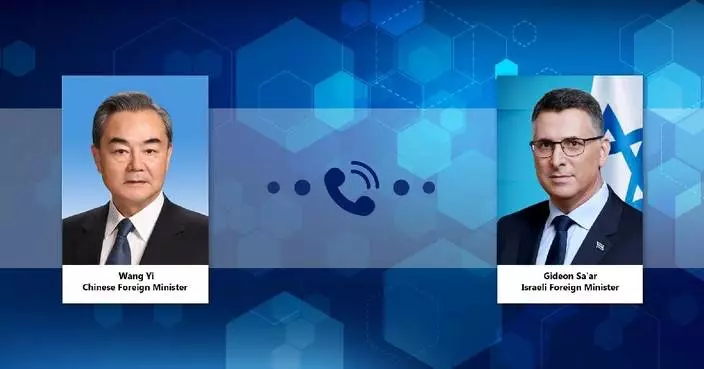
No use or threat of force serves all parties, including Israel: Chinese FM

Protesters rally in Bulgaria against US-Israeli strikes on Iran
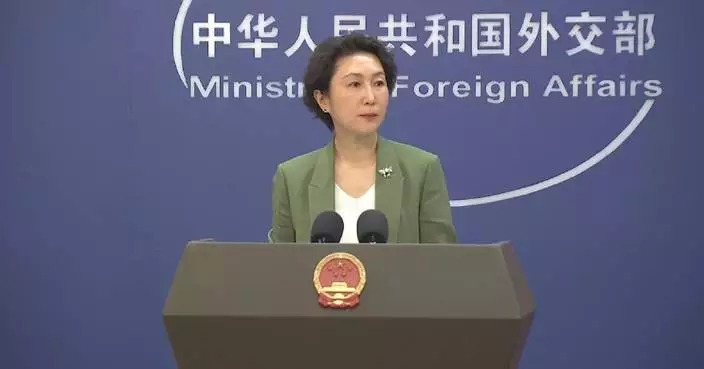
Chinese diplomatic missions continue to assist evacuation of Chinese citizens from Iran's neighboring countries : spokeswoman

U.S. embassy in Riyadh hit by drones
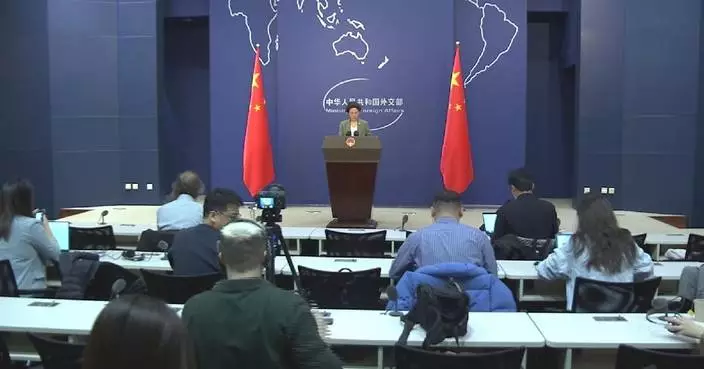
China expresses concern over U.S.-Iran conflict spillover, urges de-escalation

Photos show global reaction to attack on Iran and death of Supreme Leader Khamenei

Photos show US-Israeli strikes and Iran's response
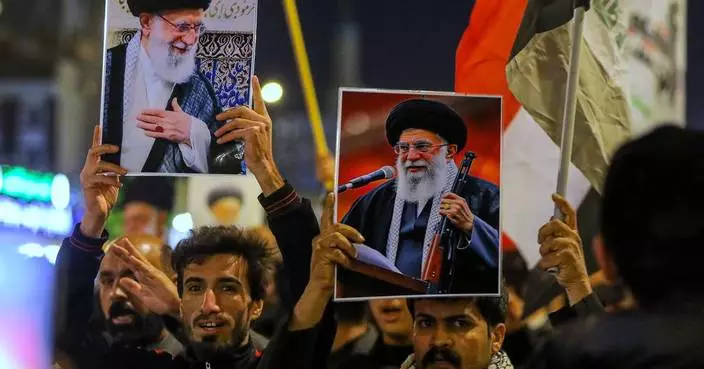
From Karachi to Beirut, Khamenei’s death sends shockwaves across the Shiite world
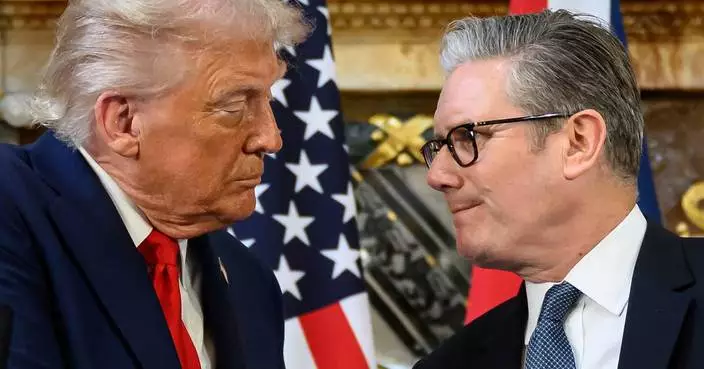
War with Iran strains the US-UK relationship as Starmer and Trump disagree
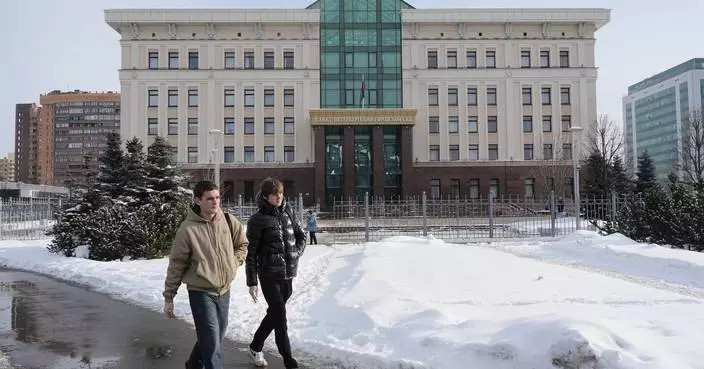
Russia bans a prominent LGBTQ+ rights group as extremist in a new blow to the beleaguered community
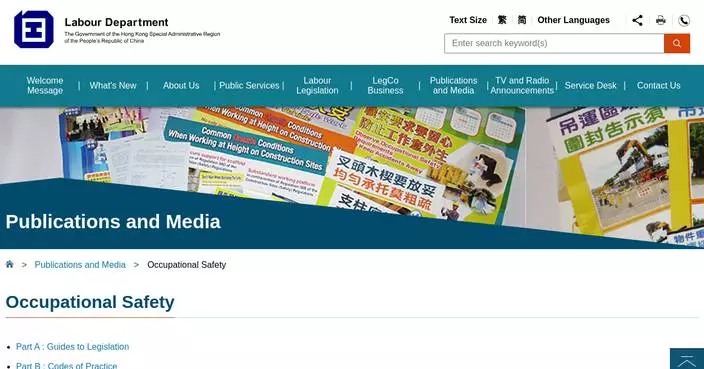
Labour Department Urges Safety Measures for Electrical Work Amid Hong Kong Rainstorm Warning
Protesters rally in Bulgaria against US-Israeli strikes on Iran

Chinese diplomatic missions continue to assist evacuation of Chinese citizens from Iran's neighboring countries : spokeswoman
U.S. embassy in Riyadh hit by drones
China expresses concern over U.S.-Iran conflict spillover, urges de-escalation
Demonstrations take place across US after US-Israeli strikes on Iran

China's top political advisory body steps up efforts to forge strong sense of community for nation: spokesman
Demonstrators gather outside White House to protest against US strikes on Iran
Trump says he will not rule out sending ground troops to Iran
Iranian FM condemns US-Israeli strikes on girls' elementary school
No use or threat of force serves all parties, including Israel: Chinese FM

Photos show global reaction to attack on Iran and death of Supreme Leader Khamenei

Photos show US-Israeli strikes and Iran's response

From Karachi to Beirut, Khamenei’s death sends shockwaves across the Shiite world

War with Iran strains the US-UK relationship as Starmer and Trump disagree

Russia bans a prominent LGBTQ+ rights group as extremist in a new blow to the beleaguered community

Labour Department Urges Safety Measures for Electrical Work Amid Hong Kong Rainstorm Warning
Feature·Bloggers

The Latest: War engulfs the Middle East as markets drop and oil prices spike
- The Latest: Most polls close in North Carolina as voter confusion snarls Texas
- All eyes on Texas as the midterm elections officially begin, in photos
- Trial against Meta in New Mexico highlights video depositions by top executives
- A large immigration detention camp in Texas is closed to visitors amid measles outbreak
- US soldiers who died in Iran war remembered as devoted parents and reservists
- Roy Cooper and Michael Whatley clinch North Carolina Senate nods, setting up high-stakes fall fight
- Texas GOP Sen. Cornyn tries to hold his seat while Democrats Crockett, Talarico face off for Senate
- Israel steps up airstrikes in Tehran, as Iran widens its response across the region
- Change in primary voting rules leads to confusion in 2 Texas counties as voters are turned away
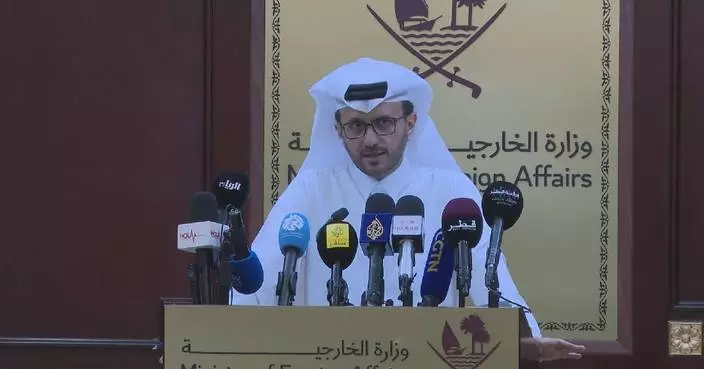
Major Qatari energy facilities damaged in Iranian strikes: foreign ministry
- Iranian armed forces, people will fight with all their strength: FM spokesman
- Airstrikes continue in Tehran: CMG reporter
- 'Ice City' of Harbin shines bright with warm celebrations at Lantern Festival Gala
- Yibin sub-venue paints touching portrait of maternal love, reunion during Lantern Festival Gala
- Song celebrating female entrepreneurial spirit in Yiwu features during Lantern Festival Gala
- Hefei sub-venue spotlights rich Chinese culture, hopes
- Zhejiang town celebrates Lantern Festival with dragon dance performances
- Demonstrators gather outside Los Angeles City Hall to protest US strikes on Iran
- Wang Yi urges immediate halt to US-Israeli strikes on Iran in calls with counterparts: FM spokeswoman

Tongyu Showcases Integrated Air-Ground-Space Full-Scenario Solutions at MWC 2026, Shaping a Smart and Green Future
- Gene Solutions Announces Strategic Entry into Türkiye with Robust Real-World Evidence at the 2nd International Hereditary Cancers Congress 2026
- Pentagon dispute bolsters Anthropic reputation but raises questions about AI readiness in military
- PROTECTHEALTH STRENGTHENS GOVERNANCE AND SERVICE CONTINUITY WITH ISO 22301 BCMS CERTIFICATION
- Anxious travelers scramble as Iran war strands hundreds of thousands across the Middle East
- Gartner® Recognizes OpenWay Group in the 2026 Market Guide for Digital Commerce Payment Platforms
- Some travelers stranded in Dubai are paying huge sums for private flights out
- TECNO and Tonino Lamborghini Announce a New International Collaboration
- VIA Labs Announces Availability of Industrial-Grade USB 5Gbps and 10Gbps Hub Controllers at Embedded World 2026
- TricorBraun ANZ Appoints Louise Baker as Managing Director

Photos of a blood-red moon and total lunar eclipse
- High-tech snowplows and AI help cities clean up from big storms
- NY attorney general demands hospital resume gender-affirming treatment for trans youth
- Iranian strikes on Amazon data centers highlight industry's vulnerability to physical disasters
- 26 Doctors without Borders workers remain unaccounted for in South Sudan a month after attacks
- Experts talk how to navigate distressing news stories and finding coping mechanisms
- Accessible walks bring the joys of birding to people with mobility and other limitations
- Electrolyte supplements are everywhere. Who benefits from them and when?
- OpenAI gets $110 billion in funding from a trio of tech powerhouses, led by Amazon
- Callers to Washington state hotline press 2 for Spanish and get accented AI English instead

Trial that could lead to the breakup of Ticketmaster's parent company gets underway
- How Love Rocks became a NYC tradition and a major God's Love We Deliver fundraiser in 10 years
- Dior's Jonathan Anderson finds his stride with a garden of earthly delights at Paris Fashion Week
- The year in review: Influential people who have died in 2026
- An Oscar race that looked like a runaway may be a close call, after all
- Robert De Niro to deliver Lincoln’s civility warning at a Carnegie Hall benefit
- Dutch museum makes 'needle in a haystack' confirmation of Rembrandt painting
- Photos of revelers celebrating Holi, the Hindu festival of colors, in India's Mathura
- Justin Timberlake sues to block release of police video from 2024 drunken driving arrest in New York
- A canceled Kennedy Center debut, a Carnegie Hall stage and De Niro reading 'Lincoln'

Hornets rout Mavericks 117-90 for 5th straight victory and .500 record
- Ejiofor leads Senior Night comeback as No. 18 St. John's tops Georgetown 72-69 at MSG
- Scherzer calls daughter's letter to Blue Jays 'the cutest thing you can possibly imagine'
- Former Wallabies coach Dave Rennie will leave Japan to take charge of the All Blacks
- Atlanta Braves' Jurickson Profar suspended for 2026 season following second positive drug test
- New York Giants are releasing linebacker Bobby Okereke, AP source says
- Sabres honor US Olympian Tage Thompson, with ex-captain Jack Eichel even getting a cheer
- Red Sox’s Brendan Rodgers likely headed for shoulder surgery, Alex Cora says
- Thunder star Shai Gilgeous-Alexander misses game against Bulls to manage abdominal strain
- U.S. shows offensive muscle in 15-1 win over Giants in exhibition before World Baseball Classic

TD Urges Commercial Drivers to Prioritize Safe Driving and Annual Health Check-Ups
- Police Announce Special Traffic Arrangements for Happy Valley Race Day Today
- Construction Industry Safety Excellence Award 2026 Now Open for Enrollment; Deadline April 17
- MOTIFX Exhibition Celebrates Chinese Culture Through Contemporary Design in Hong Kong
- Hong Kong Customs to Assist Non-Hong Kong Dealers at International Jewellery Show with Regulatory Compliance
- Hongkong Post Suspends Airmail Services to Qatar and Several Middle Eastern Destinations Amid Transport Disruptions.
- Hong Kong Unveils Nature-based Solutions Design Guidelines for Sustainable Urban Development
- John Lee Begins Beijing Visit to Strengthen Aviation and Economic Cooperation with National Authorities
- Health Department Urges Parents to Follow Vitamin D Dosage Guidelines for Infants
- Police Implement Traffic and Crowd Control for Fanling Golf Tournament March 5-8
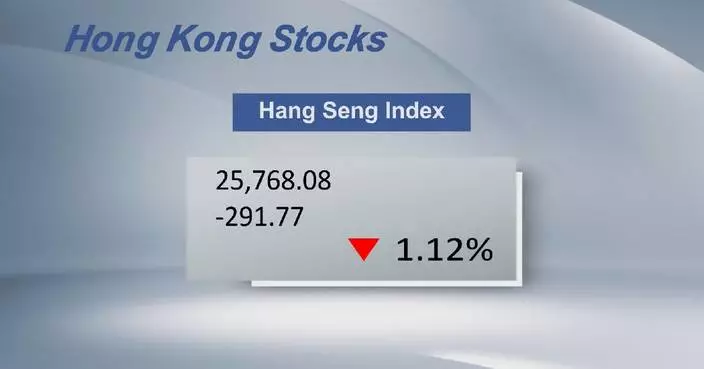
Hong Kong stocks close lower
- Chinese shares close lower Tuesday
- Q and A book on learning Xi Jinping Thought on Economy published
- Beijing, Tianjin, Hebei co-host regional initiative to promote consumption
- New York protesters rally against US-Israeli attacks on Iran
- Hainan gibbon population rebounds to 42 with robust scientific, legal support
- Takaichi's attempt to revise Constitution deeply disturbing: Japanese civil body
- Heritage traditions light up Lantern Festival celebrations across China
- Grassroots activities undertaken by CPPCC members help 'serve the people' at local level: official
- Lantern Festival celebrated in Italy, Serbia, Indonesia
Category · News

Hornets rout Mavericks 117-90 for 5th straight victory and .500 record

The Latest: War engulfs the Middle East as markets drop and oil prices spike

The Latest: Most polls close in North Carolina as voter confusion snarls Texas

All eyes on Texas as the midterm elections officially begin, in photos

Trial against Meta in New Mexico highlights video depositions by top executives

Ejiofor leads Senior Night comeback as No. 18 St. John's tops Georgetown 72-69 at MSG

Scherzer calls daughter's letter to Blue Jays 'the cutest thing you can possibly imagine'

A large immigration detention camp in Texas is closed to visitors amid measles outbreak

Former Wallabies coach Dave Rennie will leave Japan to take charge of the All Blacks

Atlanta Braves' Jurickson Profar suspended for 2026 season following second positive drug test

US soldiers who died in Iran war remembered as devoted parents and reservists

Roy Cooper and Michael Whatley clinch North Carolina Senate nods, setting up high-stakes fall fight

New York Giants are releasing linebacker Bobby Okereke, AP source says

Tongyu Showcases Integrated Air-Ground-Space Full-Scenario Solutions at MWC 2026, Shaping a Smart and Green Future

Texas GOP Sen. Cornyn tries to hold his seat while Democrats Crockett, Talarico face off for Senate
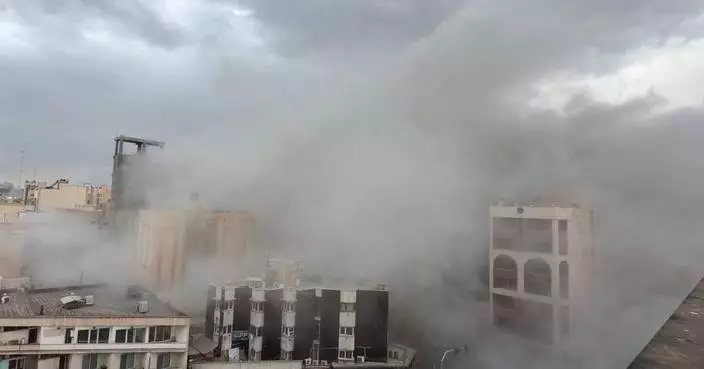
Israel steps up airstrikes in Tehran, as Iran widens its response across the region

Gene Solutions Announces Strategic Entry into Türkiye with Robust Real-World Evidence at the 2nd International Hereditary Cancers Congress 2026

TD Urges Commercial Drivers to Prioritize Safe Driving and Annual Health Check-Ups

Change in primary voting rules leads to confusion in 2 Texas counties as voters are turned away

Pentagon dispute bolsters Anthropic reputation but raises questions about AI readiness in military
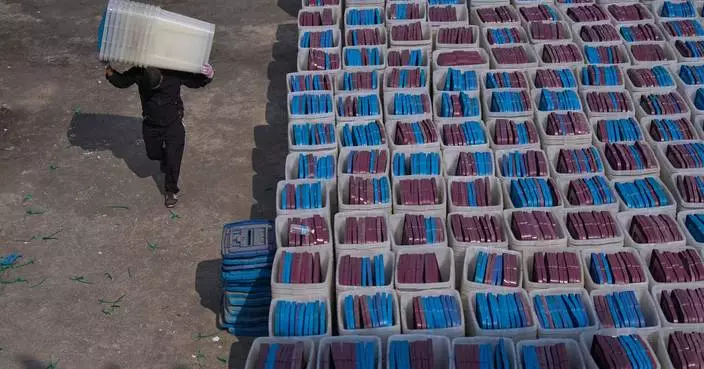
Some key figures about Nepal’s parliamentary election

Sabres honor US Olympian Tage Thompson, with ex-captain Jack Eichel even getting a cheer

Tensions flare as lawmakers question Iran war’s costs, risks and strategy

Red Sox’s Brendan Rodgers likely headed for shoulder surgery, Alex Cora says

Police Announce Special Traffic Arrangements for Happy Valley Race Day Today

Thunder star Shai Gilgeous-Alexander misses game against Bulls to manage abdominal strain

Fearing GOP upset, top California Democrat urges lagging candidates for governor to drop out of race

Construction Industry Safety Excellence Award 2026 Now Open for Enrollment; Deadline April 17

A property tax revolt spreads across states, but election-year cuts hit opposition

Photos of a blood-red moon and total lunar eclipse
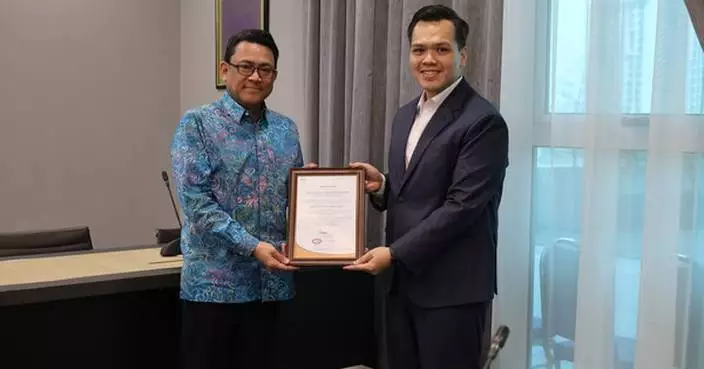
PROTECTHEALTH STRENGTHENS GOVERNANCE AND SERVICE CONTINUITY WITH ISO 22301 BCMS CERTIFICATION

Anxious travelers scramble as Iran war strands hundreds of thousands across the Middle East

Man who fatally shot a police officer with his service revolver is executed in Florida

Gartner® Recognizes OpenWay Group in the 2026 Market Guide for Digital Commerce Payment Platforms

U.S. shows offensive muscle in 15-1 win over Giants in exhibition before World Baseball Classic

GolfStatus Announces Rewards Program to Better Support Charity Golf Tournaments & Nonprofits

Testy exchanges over immigration cases highlight growing confrontations between judges and DOJ
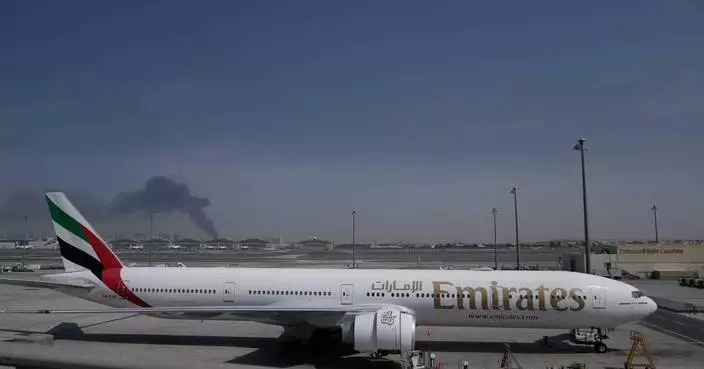
Some travelers stranded in Dubai are paying huge sums for private flights out

TECNO and Tonino Lamborghini Announce a New International Collaboration

Salah scores but Liverpool stunned by last-place Wolves 2-1 in Premier League

Florida coach Jon Sumrall's photoshoot with a 7-foot alligator includes some tense moments

Phillies outfielder Johan Rojas contesting possible 80-game drug suspension, AP source says

Walker & Dunlop Hires Mark Washington to Expand Investment Sales Platform to Pacific Northwest
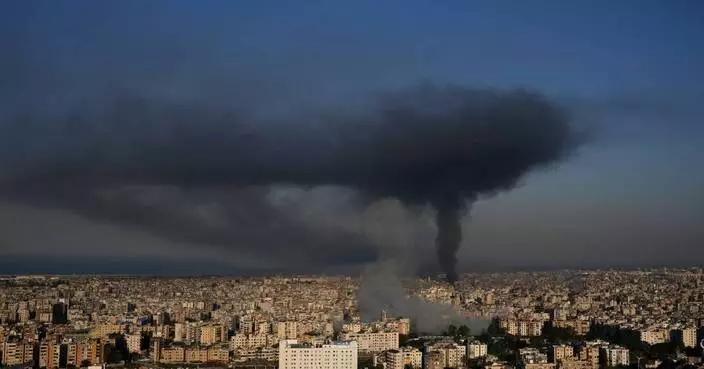
Israel sends troops into southern Lebanon as Hezbollah says it is ready for 'open war'

Alexander brothers used wealth to lure, drug and rape women and girls, prosecutor says

TELUS and AST SpaceMobile Partner to Bring Space-Based Cellular Broadband Connectivity to Every Corner of Canada

Copa Libertadores-winning coach Filipe Luís fired by Flamengo after 8-0 win

Chicago Bears Pro Bowl center Drew Dalman is retiring after 5 seasons, AP source says

VIA Labs Announces Availability of Industrial-Grade USB 5Gbps and 10Gbps Hub Controllers at Embedded World 2026

HD Construction Equipment Unveils Next-Generation Models at CONEXPO 2026, Accelerating Expansion into Advanced Markets

TricorBraun ANZ Appoints Louise Baker as Managing Director
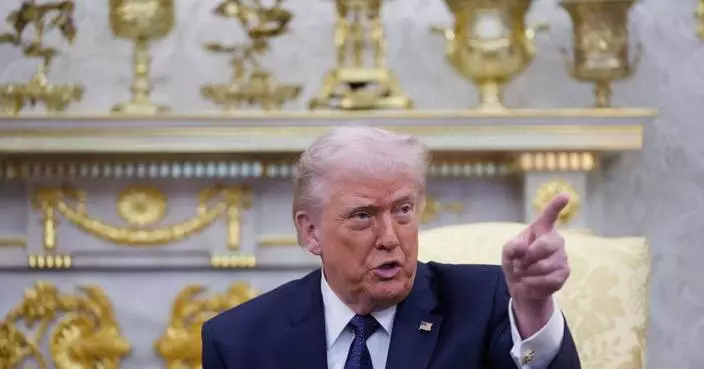
Trump says 'someone from within' Iranian regime might be best choice to lead once war ends
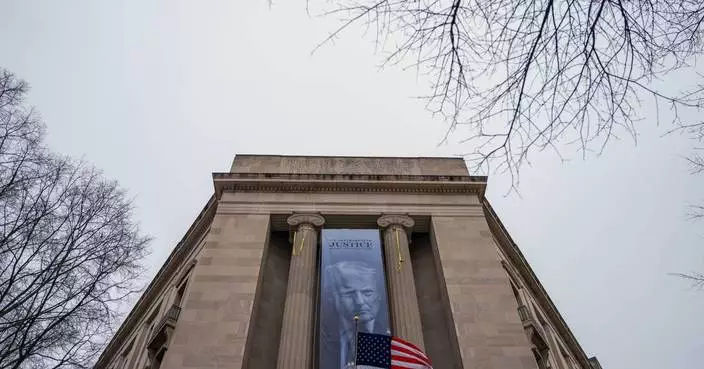
After abandoning law firm executive orders, Trump administration reverses course and pursues fight

Cyprus becomes embroiled in another Middle Eastern maelstrom with UK military bases on its soil

No. 13 Duke chases 2nd straight ACC tourney title against field with No. 12 Louisville, No. 16 UNC

Atletico Madrid advances to Copa del Rey final 4-3 on aggregate despite a 3-0 loss to Barcelona

Macron orders France's nuclear-powered aircraft carrier to the Mediterranean

With 100 days to go, World Cup faces new challenges with Iran war and Mexico violence

FACT FOCUS: Misrepresented images as Iran war progresses

Banneker High School Unveils Upgraded Weight Room Through Partnership with Anthem Blue Cross Blue Shield and Impact Fitness Foundation

Gasoline and diesel prices spike overnight as anxious drivers fill up tanks

FIFA puts World Cup playoff tickets on sale for less than $17 for matches in Mexico

FIFA World Cup 2026™ Mascots and Representatives from the New York New Jersey Host Committee, U.S. Soccer Federation, Mexico Football Federation and Canada Soccer Light the Empire State Building to Celebrate 100 Days to Go Until the FIFA World ...

Experian & HomeFree-USA Award $40,000 Scholarship to Fisk University Team for Ideas to Expand Experian’s Big Financial Friend Campaign

Colts place transition tag on Daniel Jones and Breece Hall gets franchise tag from Jets

Trial that could lead to the breakup of Ticketmaster's parent company gets underway
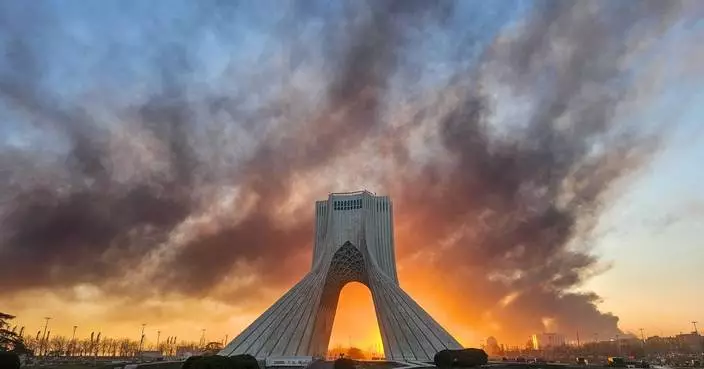
Iran war taxes US diplomatic work and leaves Americans in the Mideast in limbo

Campbell’s Appoints Cassandra Green Chief Supply Chain Officer
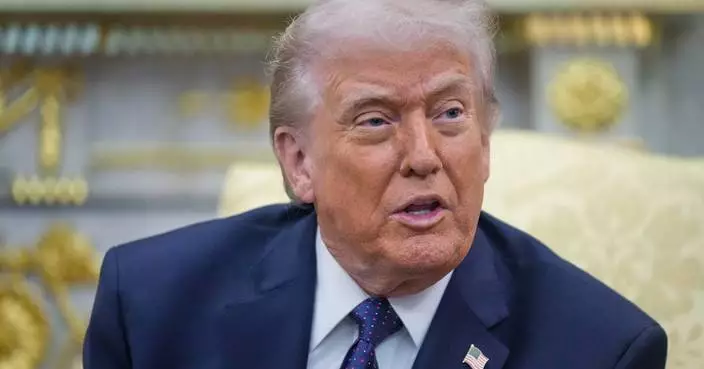
Trump threatens to cut off trade with Spain after it disallowed US use of joint bases in Iran war

Real Madrid confirms Brazil winger Rodrygo has a torn ACL, ruling him out of World Cup

A trial seeks to tie Iranian paramilitary to alleged assassination plot in US

Lingong Group Makes Global Debut as Consolidated Brand at CONEXPO-CON/AGG 2026
Major Qatari energy facilities damaged in Iranian strikes: foreign ministry
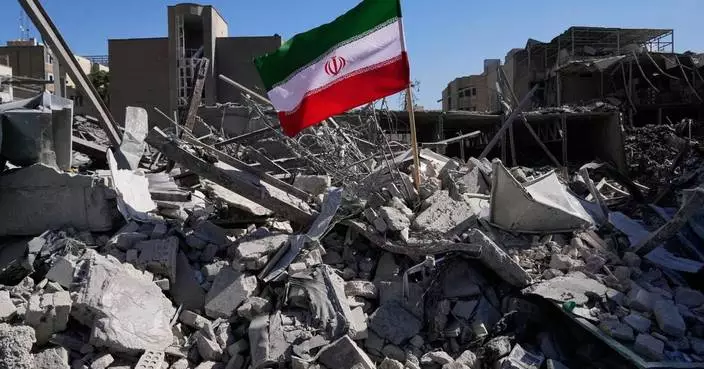
The top photos of the day by AP's photojournalists

On 3/3, USA Basketball announces new 3x3 initiative to spur growth in that version of the game

How Love Rocks became a NYC tradition and a major God's Love We Deliver fundraiser in 10 years

Czech union wants lifetime ban on former coach who secretly filmed female players

Dior's Jonathan Anderson finds his stride with a garden of earthly delights at Paris Fashion Week

Military families anxious about unknowns of Iran war, proud of their service members

High-tech snowplows and AI help cities clean up from big storms

Ethics panel opens investigation of Rep. Nancy Mace over housing costs

2 men arrested in Cincinnati nightclub shooting are facing federal charges

Target to invest another $2 billion in its business this year to reverse its sales malaise

New York’s congestion toll into Manhattan upheld by a federal judge over Trump’s objections





